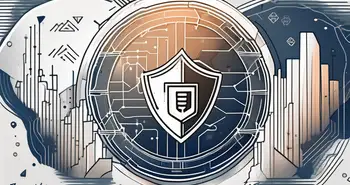The Essential Guide to Crypto Self-Custody: Protect Your Investments

Cryptocurrency has taken the financial world by storm, revolutionizing the way we perceive and handle money. While the concept of digital currencies may seem complex, one crucial aspect that every cryptocurrency user must understand is self custody. In this guide, I'll walk you through the ins and outs of crypto self custody, ensuring that you have a solid understanding of this important practice.
Understanding Crypto Self Custody
Before we delve into the specifics, let's take a moment to understand what crypto self custody entails. In simple terms, it refers to the act of taking full control of your cryptocurrency assets by managing your private keys and storing your funds securely. Instead of relying on third-party custodians, such as exchanges or wallets, self custody gives you complete ownership and responsibility over your digital wealth.
Why is self custody such a crucial aspect of cryptocurrency ownership? Let's explore its importance further.
What is Crypto Self Custody?
Crypto self custody is the practice of securing and managing your cryptocurrency assets personally, without relying on third parties or intermediaries. By taking control of your private keys, you eliminate the risk of losing access to your funds due to exchange hacks or technical failures.
Importance of Self Custody in Cryptocurrency
The importance of self custody cannot be understated, as it places the power and responsibility of managing your digital wealth firmly in your hands. By avoiding centralized custodians, you eliminate the inherent risks associated with these entities. Self custody ensures that you have the ultimate control over your funds, protecting you from potential hacks, data breaches, and even regulatory issues.
As an expert in cryptocurrency, I've seen countless stories of people losing their hard-earned funds due to negligence or trusting third parties. I speak from personal experience when I say that self custody is the safest and most reliable way to protect your cryptocurrency assets.
Let me share with you a cautionary tale that highlights the importance of self custody. Imagine a scenario where an individual, let's call him John, decided to store his cryptocurrency assets on a popular exchange. John believed that the exchange's security measures were robust enough to safeguard his funds. Unfortunately, he was mistaken.
One fateful day, news broke that the exchange had suffered a massive data breach. Millions of dollars' worth of cryptocurrencies were stolen, including John's hard-earned savings. The exchange's centralized custodial system had failed, leaving John and many others devastated.
Had John practiced self custody, he would have been in control of his private keys, and the outcome could have been different. By managing his own funds securely, John could have avoided the heart-wrenching experience of losing everything.
It's not just exchange hacks that pose a risk to your cryptocurrency assets. Regulatory issues can also have a significant impact. Governments around the world are still grappling with how to regulate cryptocurrencies effectively. This uncertainty can lead to sudden changes in regulations, freezing or confiscating funds held by centralized custodians.
By embracing self custody, you are not only protecting yourself from external threats but also ensuring that your digital wealth remains truly yours, free from the whims of regulatory authorities.
The Basics of Cryptocurrency
Before diving into the intricacies of self custody, it's essential to have a solid understanding of the basics of cryptocurrency. Let's take a closer look at what cryptocurrency is and how it works.
An Overview of Cryptocurrency
Cryptocurrency is a digital or virtual form of money that is secured by cryptography. It operates on decentralized technology, such as blockchain, which ensures transparency, security, and immutability. Unlike traditional fiat currencies controlled by centralized authorities, cryptocurrencies are decentralized and exist on a peer-to-peer network.
The concept of cryptocurrency was introduced by an unknown person or group of people under the pseudonym Satoshi Nakamoto in 2009 with the creation of Bitcoin, the first and most well-known cryptocurrency. Since then, thousands of alternative cryptocurrencies have been developed, each with its own unique features and applications.
How Cryptocurrency Works
At its core, cryptocurrency relies on a system of cryptography to secure transactions and control the creation of new coins. Transactions made with cryptocurrencies are verified and added to a public ledger known as the blockchain. Miners play a key role in this process, as they confirm transactions and secure the network by solving complex mathematical problems.
One of the key advantages of cryptocurrency is its ability to provide financial services to individuals who may not have access to traditional banking systems. This has led to increased financial inclusion and empowerment for people in developing countries and underserved communities around the world.
As an expert in cryptocurrency, I've witnessed the transformative power of this technology. However, it's important to remember that with great power comes great responsibility – this is where self custody enters the picture.
Setting Up Your Crypto Wallet
Now that you have a good grasp of cryptocurrency fundamentals, let's move on to setting up your crypto wallet for self custody.
But before we dive into the nitty-gritty of setting up a wallet, let's explore the fascinating world of cryptocurrency wallets and understand their different types.
Types of Crypto Wallets
There are several types of crypto wallets available, each with its own unique set of features and security considerations. The two main categories are hardware wallets and software wallets.
Hardware wallets, as the name suggests, are physical devices that store your private keys offline, making them highly secure against online threats. These wallets resemble USB drives and provide an extra layer of protection by keeping your sensitive information isolated from the internet.
On the other hand, software wallets can be installed on computers or mobile devices, offering convenience and accessibility. They are like digital vaults that allow you to access your cryptocurrencies on the go. However, it's important to note that software wallets may be more vulnerable to security risks, such as malware or phishing attacks.
Choosing the right wallet depends on your needs and preferences. It's crucial to research and select a wallet that aligns with your security requirements. Remember, the security of your crypto assets should always be a top priority.
Steps to Set Up a Crypto Wallet
Setting up a crypto wallet involves a few simple steps:
- Research and choose a reputable wallet that supports the cryptocurrencies you own. Look for wallets with a strong track record and positive user reviews.
- Follow the wallet's installation instructions and create a strong, unique password. Remember, a strong password is a combination of uppercase and lowercase letters, numbers, and special characters.
- Securely store your private keys, backup phrases, or any other recovery information provided by the wallet. Consider using a hardware wallet or writing down the information on a piece of paper and storing it in a safe place.
- Transfer your cryptocurrency assets to your newly created wallet. This step involves sending your funds from your exchange or another wallet to your new wallet's address. Double-check the address to ensure accuracy.
By taking these steps, you'll be on your way to securely managing your cryptocurrency assets with self custody. Remember to stay vigilant and keep your wallet and recovery information safe.
Now that you have a solid understanding of crypto wallets and the steps involved in setting them up, you're ready to embark on your journey as a self-custodian of your digital wealth. Happy wallet setup!
Security Measures for Crypto Self Custody
Ensuring the security of your crypto assets is of utmost importance when practicing self custody. Let's explore some key security measures you should consider.
Protecting Your Private Keys
Your private keys are the keys to your cryptocurrency kingdom. Keeping them secure is paramount. Consider the following:
- Use a hardware wallet to store your private keys offline.
- Avoid sharing your private keys with anyone.
- Create strong and unique passwords for your wallets.
Regular Backup of Your Wallet
Regularly backing up your wallet is crucial to protect against data loss or hardware failure. Consider the following:
- Follow your wallet's backup instructions and securely store the backup files.
- Consider using multiple backup locations, such as external hard drives or encrypted cloud storage.
- Test your backups periodically to ensure they can be successfully restored.
Risks and Challenges of Crypto Self Custody
While self custody offers enhanced security and control, there are risks and challenges to be aware of.
Understanding the Risks
One of the primary risks of self custody is the potential for human error. Losing your private keys or forgetting your passwords can result in a permanent loss of funds. Additionally, if your hardware wallet gets lost or damaged, you could face significant challenges in accessing your funds.
Overcoming the Challenges
Overcoming the challenges of self custody requires diligent effort and attention to detail. By adhering to best practices, such as backup redundancy and secure password management, you can significantly reduce the risks associated with self custody.
FAQ
What is crypto self custody?
Crypto self custody is the practice of personally securing and managing your cryptocurrency assets, giving you complete control over your private keys.
Why is self custody important in cryptocurrency?
Self custody is important in cryptocurrency because it gives you full ownership and control over your funds, protecting you from hacks, data breaches, and regulatory issues.
How can I set up a crypto wallet for self custody?
To set up a crypto wallet for self custody, research and choose a reputable wallet, follow the installation instructions, and securely store your private keys.
What are the risks of crypto self custody?
The risks of crypto self custody include the potential loss of private keys, forgetting passwords, and the risk of physical loss or damage to hardware wallets.
How can I overcome the challenges of crypto self custody?
To overcome the challenges of crypto self custody, it's important to backup your wallet regularly, securely store your private keys, and follow best practices for password management.
In conclusion, crypto self custody is a critical aspect of cryptocurrency ownership. By understanding the basics, setting up a secure wallet, implementing robust security measures, and overcoming the associated challenges, you can confidently take control of your cryptocurrency assets and protect them from potential risks. Remember, self custody is the ultimate way to safeguard your digital wealth.
Ready to take the next step in securing and managing your digital wealth with the autonomy that crypto self custody offers? Look no further than Morpher, the revolutionary trading platform that empowers you with zero fees, infinite liquidity, and the safety of a non-custodial wallet. Whether you're trading stocks, cryptocurrencies, or exploring unconventional markets, Morpher's fractional investing, short selling capabilities, and up to 10x leverage ensure a unique and flexible trading experience. Sign Up and Get Your Free Sign Up Bonus today to transform the way you invest with the power of blockchain technology.

Disclaimer: All investments involve risk, and the past performance of a security, industry, sector, market, financial product, trading strategy, or individual’s trading does not guarantee future results or returns. Investors are fully responsible for any investment decisions they make. Such decisions should be based solely on an evaluation of their financial circumstances, investment objectives, risk tolerance, and liquidity needs. This post does not constitute investment advice.

Painless trading for everyone
Hundreds of markets all in one place - Apple, Bitcoin, Gold, Watches, NFTs, Sneakers and so much more.

Painless trading for everyone
Hundreds of markets all in one place - Apple, Bitcoin, Gold, Watches, NFTs, Sneakers and so much more.









